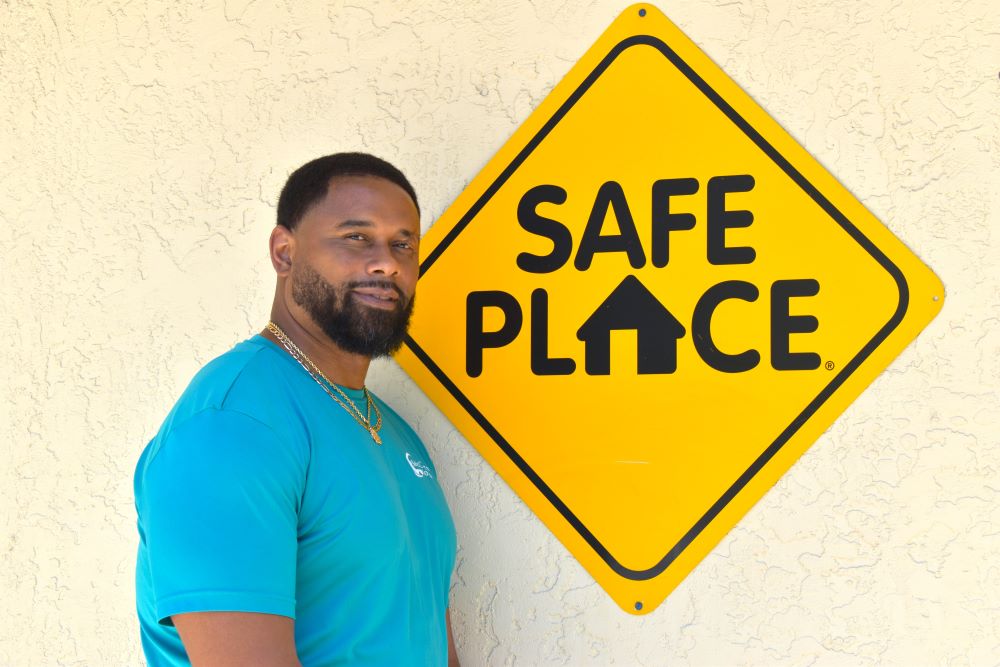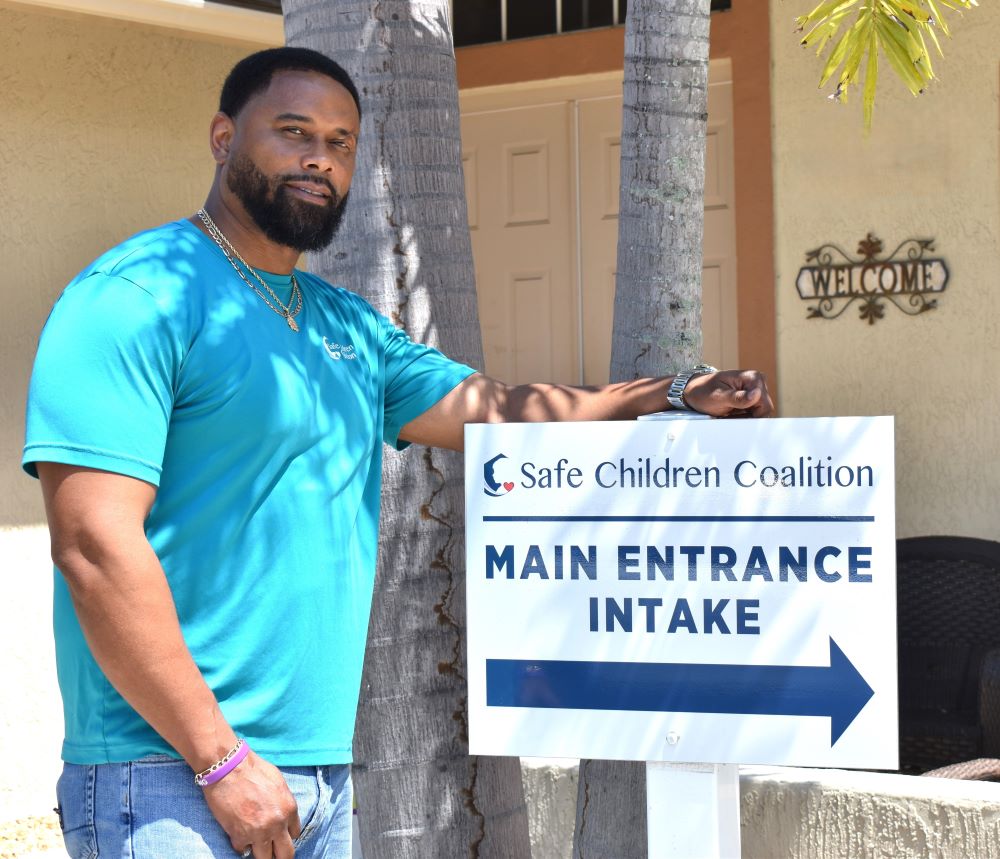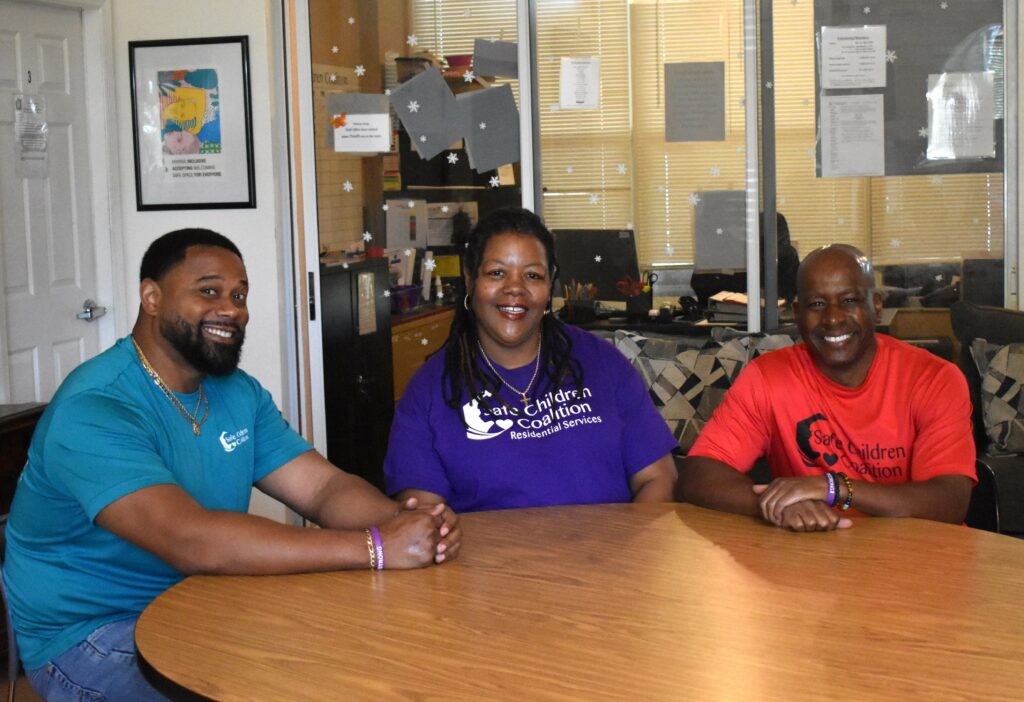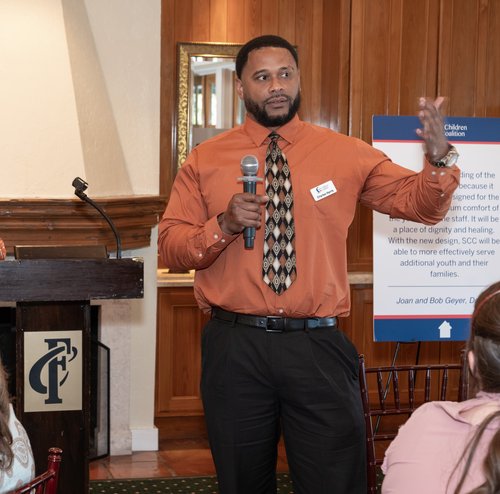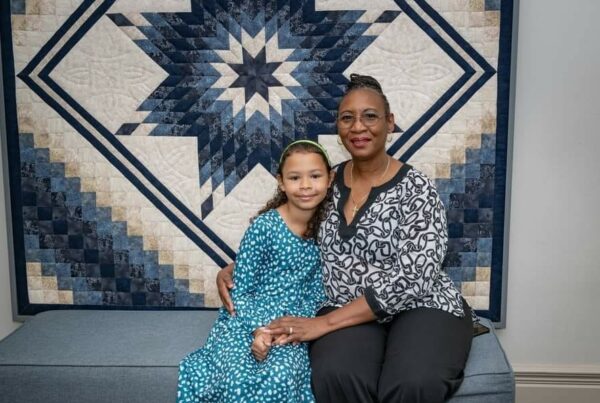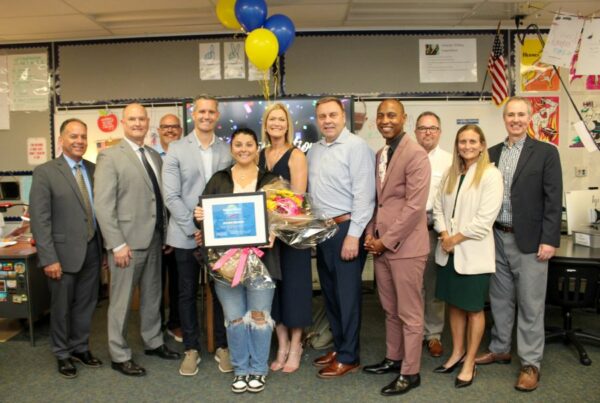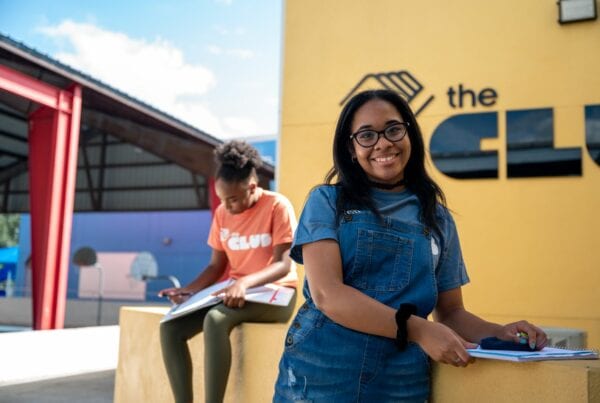Charles Harris earned his master’s degree in Management Information Systems. Computer programming. And he hated it.
“You’re creating interfaces for something, and you don’t even know what it goes to,” he says. “You write code, then they send you something else, and you write more code. You didn’t see an end product. It was like, ‘What am I doing?’”
Then a friend who worked at the Sarasota Youth Shelter told him they needed some help. “I thought I’d be tossing a football and just hanging out with the kids — ‘big brother’ type stuff,” he recalls.
So, Charles stopped by after one of his regular workouts at the adjacent fitness center. (Up until then, he didn’t even know the nearby building was a youth shelter.) He was still sweaty in his gym clothes. That’s when he learned it was a “job” job that was available.
But Charles was game. He was ready for something different. Before he knew it, he was working occasional shifts at the shelter. A few months later, a management position opened there and he applied. That was 14 years ago. Today, he’s the shelter director.
Making a Difference
“I got sucked into the cause,” Charles says. “My parents said, ‘You went to grad school to do this? You could have done this years earlier!’” But he quickly knew he’d found his calling in social services. “I felt like this is what I was ‘meant to do,’” he says. “When you’re in the right spot, it feels good. I felt like I was making a difference.”
Charles has worked just about every role at the youth shelter. “I’ve worn all the hats,” he says. For the past four years, he has served as Director of Residential Programs for the Safe Children Coalition (SCC), the nonprofit child-welfare organization under which the shelter operates.
“I felt like this is what I was ‘meant to do.’
I felt like I was making a difference.”
When he started, Charles didn’t know all he knows now. “I was taking lumps,” he remembers. One situation in particular sticks with him from the early days: a 17-year-old with severe substance abuse issues. The team provided referrals for treatment and successfully reunited the family. But soon after turning 18, the youth suffered a fatal overdose.
Charles fixated on that loss, re-reading the old case chart and progress reports to understand if he could have done anything differently before the youth aged out of the system. It shook him up. “I wanted to quit and go back to computers after that. Because no computer is going to…,” he trails off.
It’s still painful, but he learned from that devastating experience. And he started seeing small victories again. Like phone calls after someone was successfully discharged from the shelter, just to say “thank you.” Or seeing them years later in the community, with a big smile and message of gratitude for “Mr. Charles.”
“You’ve got to take the losses,” says the former college football player. “But if you can change one cycle, one family curse. A whole family may be dysfunctional, but if you can change one person and then they have kids, they’re out of that pattern. If you do your best, you should win more than you lose. I feel like we win more than we lose.”
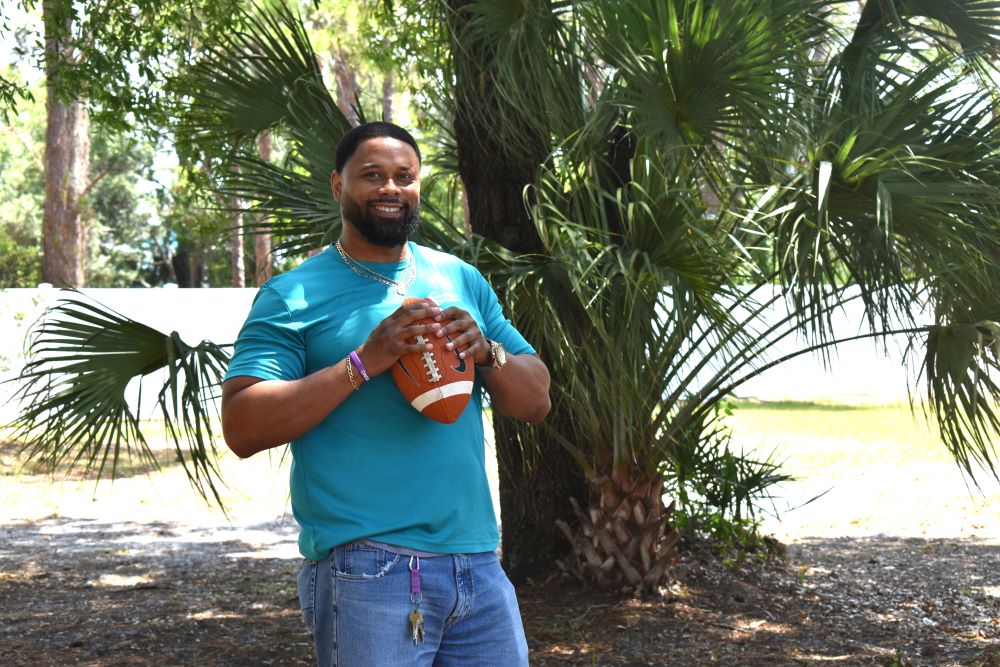
“We’re humans, first and foremost”
The “we” he refers to on that winning team is his tight-knit staff at the shelter. “Most of the staff who work here, I knew them before they came here,” he says. “I brought them in. And then they’ve known people who they could vouch for—their quality—and they brought them in.” He compares it to ‘six degrees of Kevin Bacon,’ with a laugh: “We’re all in it because we know somebody.”
The work’s hard. There are strict rules and regulations. And lots of paperwork. But Charles approaches it with reason and heart. “I’m a big believer in ‘it takes a village,’” he says. “One thing I love about this team is that there are no ‘positions.’ Sure, I’m the director, Alan’s the assistant director, that’s the counselor. But if the door rings and a kid is in crisis, we’re humans, first and foremost.”
He’s also open-minded. “I don’t believe in a ‘bad kid,’” Charles says. “I believe that a kid may have had bad things happen to them, and they don’t know how to cope with it or respond to it. If you figure out what they’re trying to get, what they’re trying to accomplish, and remind yourself to help them accomplish it, then we can get somewhere.”
The youth shelter provides temporary housing and safe care for young people ages 10 to 17. They might have run away, experienced family conflict, or been locked out of their homes—and the goal is to help them stay out of foster care. Some are in the foster-care system already. All get treated as individuals.
“It’s really more of a behavior-based program,” says Charles. The team does assessments. They see what each youth and family needs and then try to put the right pieces in place. Individual and family counseling helps teens safely return home and prevent the long-term homelessness that can lead to other challenges. “Every problem has some kind of solution,” he says.
“I don’t believe in a ‘bad kid.’ I believe that a kid may have bad things happen to them, and they don’t know how to cope with it or respond to it.”
Charles or another team member will drive residents as far as North Port every day so they can stay in the same school without disruption. “Some kids are getting removed from their families, so the last thing I want is for them to have to uproot from friends at school,” he says. The shelter even serves youth from DeSoto and, when needed, Manatee counties. In those cases, staff works with the respective school district to coordinate virtual schooling.
“Every kid is different,” Charles says. “But you see a lot of the same situations.” He tells residents at the shelter that they teach him more than he ever teaches them. “When I empower them and say, ‘I’m learning from you,’ it makes them want to talk to me more,” he says.
A New Youth Shelter
The shelter Charles directs right now is a temporary space. SCC is in the midst of a major capital campaign to construct a new one—a new home to provide new beginnings for homeless and troubled youth in our community.
As the only youth shelter in Sarasota and DeSoto counties, it will be centrally located and maximize space and security. Unlike the current space, it’s custom-designed for its use, which will eliminate much of the logistical gymnastics required now to safely house boys and girls of different ages with different needs, behaviors, and past trauma. Last year, Charles and his team served just over 100 kids, sometimes for more than one stay. The new shelter will serve and support up to 200 annually.
Charles can’t wait for that brand new building. But he’d love to give it a different name than “shelter” some day. “When people think of a shelter, you think of an animal shelter—of strays being thrown in cages,” he says. “I don’t want people to look at this as a place where the kids come and just flop. We try to teach the kids life skills; we try to better them.
“I’m not smart enough to come up with a better term,” he adds with a laugh, “but I tell everybody I see.”
Learn more about the Safe Children Coalition’s Sarasota Youth Shelter and how you can support it, including a challenge match that is currently available.
